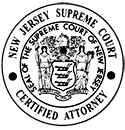5.20D DUTY OF OWNER OF MULTI-FAMILY HOUSE TO TENANTS AND OTHERS
A. Areas Over Which Landlord Retains Control (In or Out of Tenant’s Premises)
In this case, plaintiff alleges that he/she was injured on property under the control of defendant, the landlord. The plaintiff contends that the landlord was negligent by failing to exercise reasonable care in maintaining the property. A landlord has a duty to inspect/maintain/repair all parts of the property under the landlord’s control, including the common areas and the premises within the tenant’s apartment. This duty requires the landlord to exercise reasonable care to guard against foreseeable dangers arising from the use of the property.
However, a landlord’s duty to inspect/maintain/repair the property is not absolute. The landlord is not an insurer for the safety of his/her/its tenants. The duty to exercise reasonable care means that the landlord must maintain the property in a reasonably safe condition for the use and enjoyment of the tenants and their guests.
Plaintiff alleges that the landlord was negligent because he/she/it failed to exercise reasonable care.
- Where Plaintiff Relies on Violation of Statute or Regulation
Plaintiff further claims that the landlord was negligent because defendant violated a statute/regulation. Plaintiff claims the landlord violated the following statutory/regulatory responsibilities to furnish habitable residential premises. Statutory and regulatory responsibilities establish a standard of conduct for landlords. If the defendant violated any statute/regulation, the violation may be considered by you as evidence of defendant’s negligence. However, such violations are not conclusive on the issue of the defendant’s negligence, and you are to consider all the evidence and circumstances to reach your decision on whether the defendant was negligent in this case. - Use the following language when appropriate:
The landlord’s duty to exercise reasonable care cannot be delegated or transferred to others. The landlord may not relieve himself/herself/itself of that duty by hiring an employee/independent contractor to perform the maintenance or repairs. In other words, if an employee/independent contractor of the defendant failed to exercise reasonable care in maintaining or repairing the property, the defendant is still liable for any injuries to the tenant or his/her guests. - Where There is a Factual Issue as to Landlord’s Actual or Constructive Notice of Defect
Defendant claims that he/she/it was not negligent in this case because he/she/it had no knowledge of the defect that caused plaintiff’s injury.
The landlord is only liable for injuries to a tenant/guest by reason of defects of which the landlord knew or should have known before the accident. A landlord should have known of the defect, if the defect was discoverable by the landlord through a reasonable inspection of the premises.
In other words, for defendant to be liable for plaintiff’s injury, plaintiff must establish (1) that the property was in a defective condition; (2) that the existence of the defective condition was known or should have been known by the landlord before the plaintiff’s injury; (3) that the landlord, after he/she/it knew or should have known of the defect, failed to act reasonably under the circumstances; and (4) that the landlord’s negligence was a proximate cause of the plaintiff’s injury. On the other hand, if you find either that the defect was not known or reasonably discoverable by the defendant; that the landlord acted reasonably under the circumstances after he/she/it knew or should have known of the defect; or that the landlord’s conduct was not a proximate cause of the plaintiff’s injury, then you should find for defendant.
If the landlord was negligent and such negligence was a proximate cause of the plaintiff’s injury, then the defendant is liable for the injury. On the other hand, if the defendant was not negligent or the defendant’s negligence was not a proximate cause of the plaintiff’s injury, then the defendant is not liable.
B. Facilities or Equipment Provided by Landlord (In or Out of Tenant’s Premises)
In this case, plaintiff alleges that the defendant was negligent in maintaining (or repairing) equipment/systems/facilities provided by the landlord for the common use and benefit of all the tenants and that defendant’s negligence was a proximate cause of plaintiff’s injury. A landlord has a duty to maintain (or repair) the equipment/systems/facilities in or out of a tenant’s apartment/premises that are an integral part of equipment/ systems/facilities under the landlord’s control. This duty requires the exercise of reasonable care to guard against dangers arising from the installation/ maintenance/operation of the equipment/system/facilities.
However, a landlord’s duty to maintain (or repair) the equipment/facilities/systems is not absolute. The landlord is not an insurer of the safety of his/her/its/ tenants. The duty to exercise reasonable care means that the landlord must maintain the equipment/systems/facilities in a reasonably safe condition for the use and enjoyment of the tenants and their guests.
Plaintiff alleges that the landlord was negligent because he/she/it failed to exercise reasonable care.
If the landlord was negligent and such negligence was a proximate cause of the plaintiff’s injury, then the defendant is liable for the injury. On the other hand, if the defendant was not negligent or defendant’s negligence was not a proximate cause of the plaintiff’s injury, then the defendant is not liable.
C. Landlord’s Duty Arising from Covenant to Repair
In this case, plaintiff alleges that defendant was negligent in performing his/her/its contractual obligation to make repairs and that defendant’s negligence was the proximate cause of plaintiff’s injury. Where the lease (or other contractual obligation) requires the landlord to make repairs of the leased premises (or to keep the premises in repair), the landlord has a duty to exercise reasonable care in determining what repairs, if any, are necessary. He must make reasonable inspections of the premises to determine whether repairs are needed. He also has a duty to exercise reasonable care in making repairs (or having those repairs made). The landlord’s duty to exercise reasonable care does not mean that he/she/it guarantees by such an agreement that the leased premises will never become in need of repairs.
Plaintiff alleges that the landlord was negligent because he/she/it failed to fulfill his/her/its agreement to repair.
If the landlord was negligent in performing his/her/its obligations under the contractual agreement to make repairs and such negligence was a proximate cause of plaintiff injury, then the defendant is liable for the injury. On the other hand, if the defendant was not negligent in performing his/her/its obligations under the contractual agreement to make repairs or the defendant’s negligence was not a proximate cause of the plaintiff’s injury, then the defendant is not liable.
D. Landlord’s Duty Arising from Voluntary Repairs to Correct a Defective Condition
In this case, plaintiff alleges that defendant was negligent in making repairs he/she/it voluntarily undertook on the premises and that defendant’s negligence was a proximate cause of plaintiff’s injury.
When a landlord voluntarily undertakes to repair defects on the leased premises, either for compensation or no compensation, the landlord has a duty to perform the work in a reasonably careful manner and the landlord is liable in damages if he/she/it is negligent in making such repairs.
In determining whether the defendant was negligent in this case, you should consider whether the premises were made more dangerous by the repairs voluntarily made by the landlord and whether the tenant was misled into relying upon the sufficiency of the repairs to his/her detriment.
If the landlord was negligent in making the voluntary repairs and such negligence was a proximate cause of the plaintiff injury, then the defendant is liable for the injury. On the other hand, if the defendant was not negligent in making the repairs or the defendant’s negligence was not a proximate cause of the plaintiff’s injury, then the defendant is not liable.



